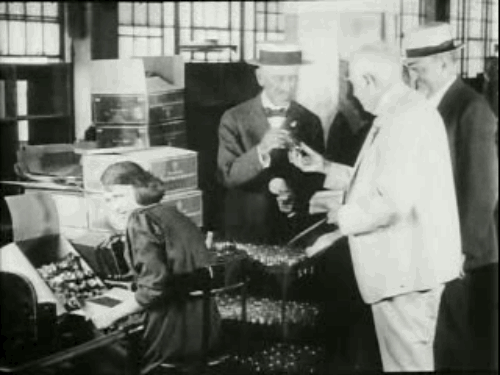Northwestern economist Robert Gordon may be too bearish on the transformative powers of the Internet, but he does make a good case that the technological innovations of a century ago dwarf the impact of the information revolution.
A well-written and sadly un-bylined Economist review of the academic’s new book, The Rise and Fall of American Growth, looks at how the wheels came off the U.S. locomotive in the 1970s, courtesy of the rise of global competition and OPEC along with increasing inequality on the homefront. Gordon is dour about the prospects of a new American century, believing technologists are offering thin gruel and that Moore’s Law is running aground. The reviewer thinks the economist is ultimately too dismissive of Silicon Valley.
An excerpt:
The technological revolutions of the late 19th century transformed the world. The life that Americans led before that is unrecognisable. Their idea of speed was defined by horses. The rhythm of their days was dictated by the rise and fall of the sun. The most basic daily tasks—getting water for a bath or washing clothes—were back-breaking chores. As Mr Gordon shows, a succession of revolutions transformed every aspect of life. The invention of electricity brought light in the evenings. The invention of the telephone killed distance. The invention of what General Electric called “electric servants” liberated women from domestic slavery. The speed of change was also remarkable. In the 30 years from 1870 to 1900 railway companies added 20 miles of track each day. By the turn of the century, Sears Roebuck, a mail-order company that was founded in 1893, was fulfilling 100,000 orders a day from a catalogue of 1,162 pages. The price of cars plummeted by 63% between 1912 and 1930, while the proportion of American households that had access to a car increased from just over 2% to 89.8%.
America quickly pulled ahead of the rest of the world in almost every new technology—a locomotive to Europe’s snail, as Andrew Carnegie put it. In 1900 Americans had four times as many telephones per person as the British, six times as many as the Germans and 20 times as many as the French. Almost one-sixth of the world’s railway traffic passed through a single American city, Chicago. Thirty years later Americans owned more than 78% of the world’s motor cars. It took the French until 1948 to have the same access to cars and electricity that America had in 1912.
The Great Depression did a little to slow America’s momentum. But the private sector continued to innovate. By some measures, the 1930s were the most productive decade in terms of the numbers of inventions and patents granted relative to the size of the economy. Franklin Roosevelt’s government invested in productive capacity with the Tennessee Valley Authority and the Hoover Dam.
The second world war demonstrated the astonishing power of America’s production machine. After 1945 America consolidated its global pre-eminence by constructing a new global order, with the Marshall Plan and the Bretton Woods institutions, and by pouring money into higher education. The 1950s and 1960s were a golden age of prosperity in which even people with no more than a high-school education could enjoy a steady job, a house in the suburbs and a safe retirement.
But Mr Gordon’s tone grows gloomy when he turns to the 1970s.•
Tags: Robert Gordon

